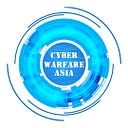Middle-East Giants Choose Their Cyber Operation Partners in US, Israel, Italy and Turkey
Over the years Middle East has evolved itself from a region of possibilities to a region of sensitivity for its natural resources and the regional rivalry for it. Though the giants, UAE, Saudi and Qatar possess the most important natural resource, oil and gas in abundance what they lack is the skill set to safeguard their conflicting interests in the region. With the emergence of cyber warfare, they can no more depend on just physical security systems to protect their territory. Hence, given the scarcity of cyber capabilities pushed UAE, Saudi and Qatar to opt for outsourcing their cyber operations to actors in and beyond region.
The outsourcing of cyber projects is not limited to one actor dedicated to a State but has been diversified as per the expertise of each and every segment of cyber operations. For instance, It is no secret that Baltimore-based company called Cyber Point has been closely assisting UAE in establishing signals intelligence agency (then called the National Electronic Security Authority) with “advice on cyber defense and policy”. The information was reported by Washington Post and impacted American ethical basis of serving such clients. The apprehension was raised with as it was speculated that Cyber Point might be involved in helping the UAE service acquire malware that the UAE used to support surveillance activities that included monitoring of political opponents. The Reuters report from Chris Bing and Joel Schactman further beefed up the speculation when it pointed out that ex-NSA employees were working in UAE signals intelligence under the name of “Project Raven” which was further contracted to UAE based firm Dark Matter.
Similarly, Israeli cyber intelligence firm NSO Group Technologies was hired by Saudi Arabia to use their software Pegasus 3 for spying on its opponents living abroad such as the London-based comedian Ghanem Almasarir and human rights activist Yahya Assiri as well as activist Omar Abdulaziz, who lives in Canada. Who were in contact with Jamal Khashoggi, the Saudi journalist killed in the Saudi consulate in Istanbul . This, despite various denials suggests that NSO did support Saudi in achieving the goals of its covert cyber operations.
The rival country Qatar could not have afforded to lose the race and hence it was looking for a strong ally for achieving its strategic operations though yet developing cyber potential. The association of Hacking Team with Qatar was first revealed through an email. A mass surveillance email linked to Qatar showed the First Secretary of Embassy of the State of Qatar listing the particular tools required by their government, data mining and profiling, global data analytics, intelligence software, mobile control and protection, cyber technologies, special trojan, lawful interception, social network analysis, Internet trafficking, audio surveillance, electronic tracking (vehicle), covert audio and video devices, listed technologies pointed at the need of conducting surveillance of mass citizens, covertly by tracking surveillance vehicle, etc. All of their mobile devices, social networking applications on them, audio/video, and even their vehicles (through GPS).
Later Qatar, also took to leverage to associate with Turkey as its regional partner in its cyber operations as Turkey already helped Qatar during the QNA hack disrupting the regional harmony.
It is quite evident that Middle Eastern giants are no more limiting their scope of influence to traditional security measures but are taking proactive steps to build a strong preventive mechanism with the help of cyber operations with its confidant cyber associations.
